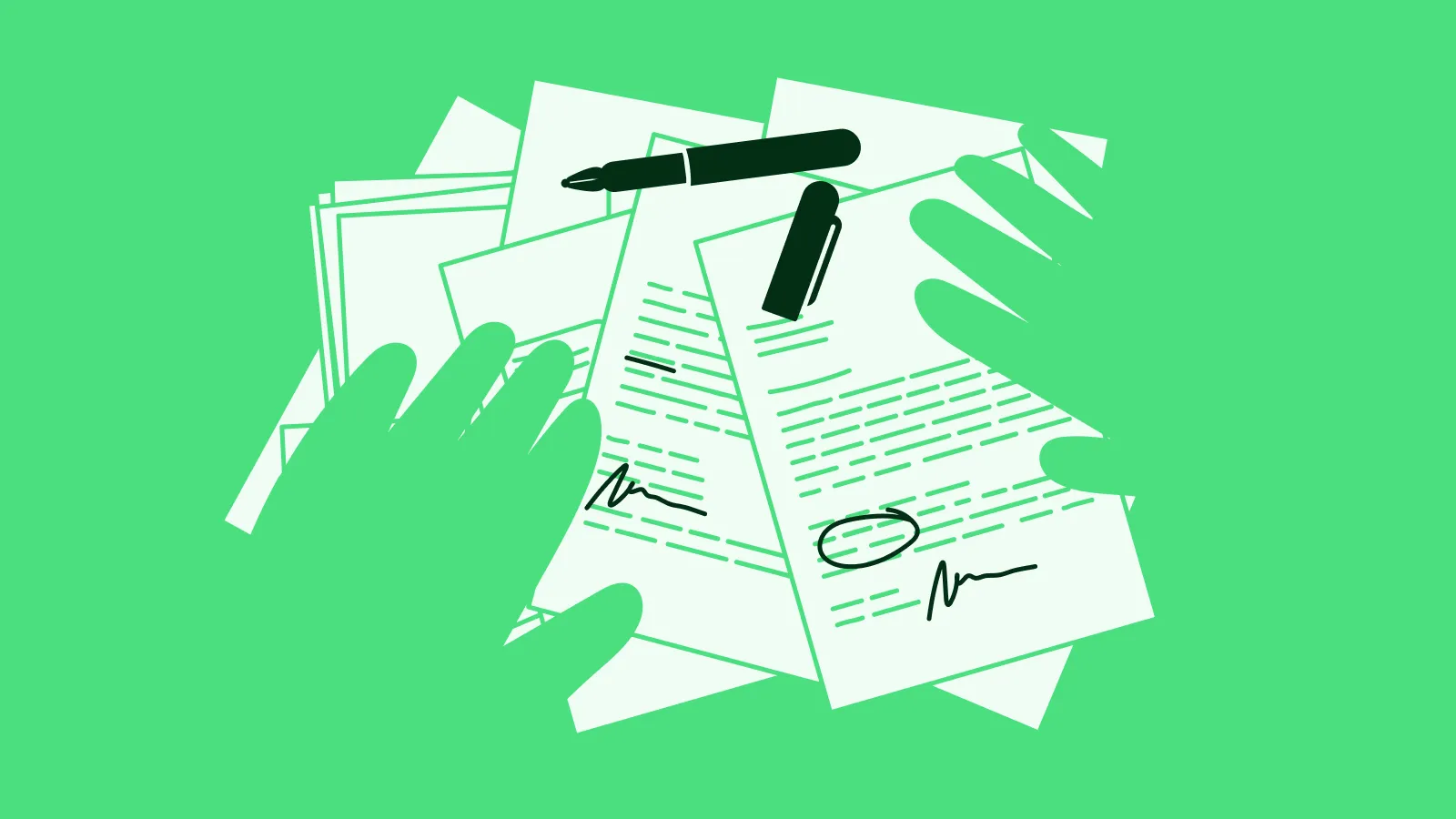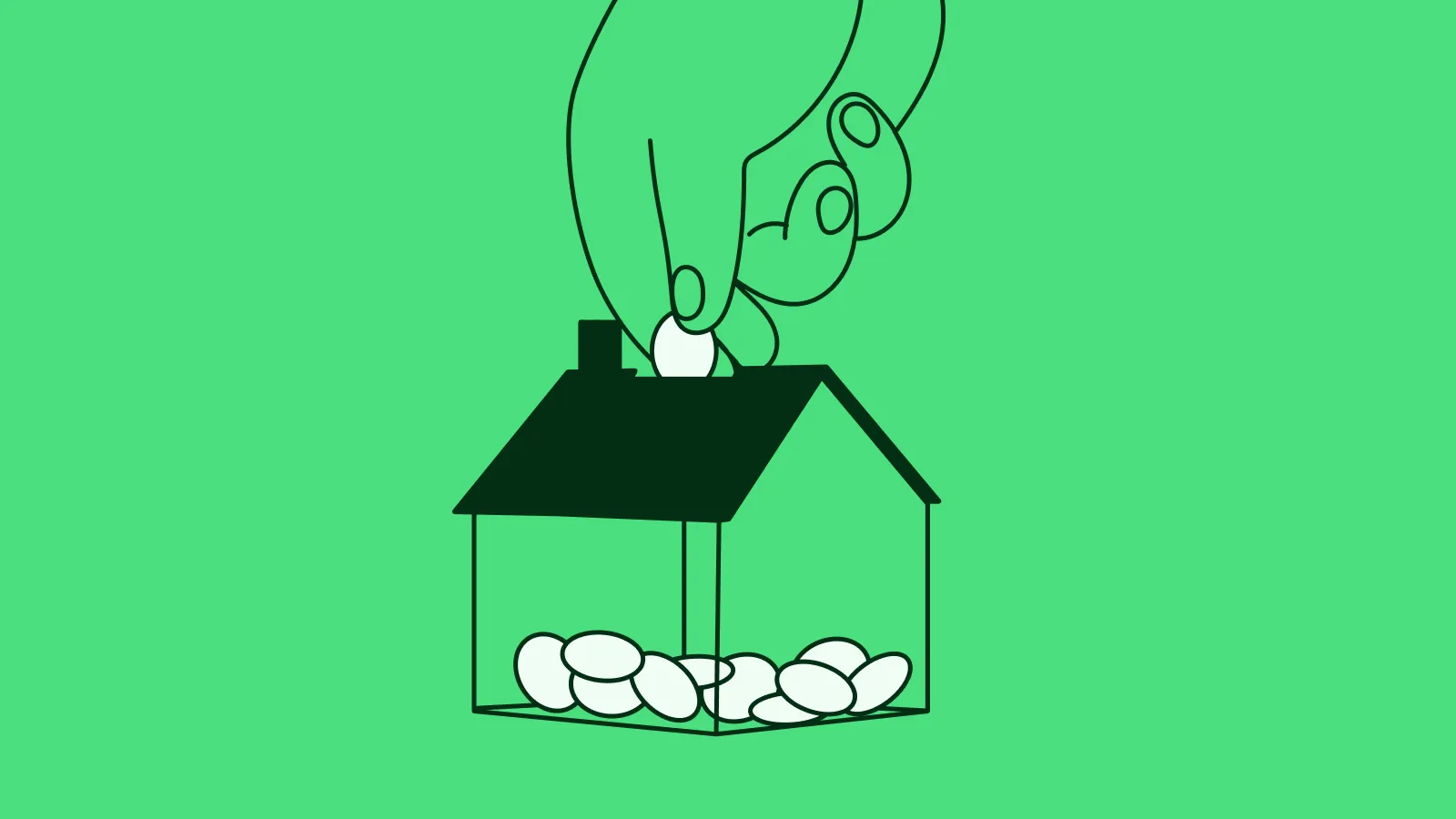Mortgage Deposits
Here’s everything you need to know about mortgage deposits, from how much you need to save to no-deposit options and help available for low-deposit buyers.
Your home may be repossessed if you do not keep up repayments on your mortgage.
Exclusive broker partner to

Author: Michael Whitehead, Head of Content
Reviewer: Paul Coss, Haysto Co-Founder and Chief Customer Officer
Updated: Jul 25 2025 5 mins
A mortgage deposit is the money you put down up front when buying a home. It’s usually a percentage of the property’s price, and the rest is covered by a mortgage. Your deposit matters. It affects which mortgage deals you can get, how much you’ll repay each month, and how confident lenders are in offering you a loan.
Let’s break it all down and help you understand what kind of deposit you’ll need and what you can do if your savings are on the smaller side.
How Much Deposit Do You Need for a Mortgage?
At the bare minimum, you’ll need to put down at least 5% of the property’s value. So, for a £200,000 home, that’s £10,000. But while that’s the starting line, putting down more can work in your favour.
Deposits aren’t just a box-ticking exercise. They also act as a form of security for mortgage lenders. The bigger your deposit, the lower the risk for the lender. As a result, this will unlock lower interest rates and more choice when it comes to mortgage products.
In short: bigger deposit = better options.
What’s the Minimum Deposit for a Mortgage?
It’s becoming much more common nowadays for most mortgage lenders to offer 95% loan-to-value (LTV) mortgages. That means you only need to put down 5% of the property price yourself.
But there’s more to getting a mortgage than providing a healthy deposit. Regardless of how big your deposit is, lenders will still look at your financial situation overall before making a decision, which includes:
Reviewing your recent credit history.
Providing evidence of a stable income that comfortably covers all your outgoings.
The property itself also needs to meet the lender’s criteria.
You can find out more about how all this works in our guide on How to Get a Mortgage.
What Are the Benefits of Having a Larger Deposit?
Putting down more money upfront might feel like a big ask, but the pay-off can be worth it over the full term of your mortgage. Here’s why a bigger deposit can help:
You’ll qualify for the most competitive mortgage rates.
You can choose from a wider range of mortgage deals.
Your monthly repayments will be lower.
You’ll own more of your home from the get-go.
You’re better protected if house prices dip.
If you can push beyond 5%—even to 10% or 15%—you might find you save money in the long run. That said, everyone’s situation is different, and sometimes it’s better to get on the ladder sooner with a smaller deposit than to wait years trying to save more.
Can You Get a Mortgage With No Deposit?
Technically, yes—but mortgages with no deposit (also known as 100% mortgages) are extremely rare, with only one UK lender currently offering this type of product. The eligibility criteria are pretty strict, but you could qualify with a strong credit score, employment record and high income.
There are a few ways you can get around the deposit hurdle, such as:
Guarantor mortgages: A family member agrees to cover repayments if you can’t.
Family offset mortgages: A relative uses their savings or property equity to back your application.
Right-to-buy mortgages: If you currently live in a council property, it may be possible to buy it and qualify for a discount. This discount could be used by a lender to cover the full deposit amount.
If you want to find out more about these options, you can speak to one of our Mortgage Experts. Just click on the button below to make an enquiry, and a member of our team will be in touch to discuss this further.
How to Save for a Deposit
Saving up for a deposit doesn’t have to mean giving up everything you enjoy. It’s all about setting goals and building good habits. Here are some tips to help you save faster:
Work out your target amount: Know what you’re aiming for based on house prices in your area.
Use a Lifetime ISA (LISA): You can save up to £4,000 a year and get a 25% government bonus.
Budget realistically: Cut back where you can, but leave room for living.
Automate your savings: Set up a direct debit on payday so you won’t even know it’s been put to the side.
Boost your income: Freelancing, part-time work, or even a few extra shifts can go a long way.
Consistency beats intensity—regular, small savings add up faster than you think.
What Mortgage Schemes Are Available to Help?
There are several schemes designed to help first-time buyers get on the ladder, even if your deposit is small. Here’s what’s available:
Shared Ownership. For this scheme, you purchase a percentage of a property and pay rent on the rest. The deposit you need will be based on the share you’re buying, so it will be lower than if you were paying full market value.
First Homes Scheme. Fancy getting a brand new home with a big discount? This scheme allows for as much as 30% off the market value and is specifically designed for local first-time buyers and key workers.
Mortgage Guarantee Scheme. Set up by the government to encourage more lenders to offer 95% LTV mortgages and open to both first-time buyers and movers on properties up to £600,000.
These schemes offer an attractive lifeline if you’re struggling to save a big deposit, but aren’t necessarily right for everyone. If you get in touch, you can speak to a member of our mortgage team to find out which ones you might be eligible for and explore other options.
Buy-to-Let Mortgage Deposits
If you’re buying a property to rent out, things work a little differently. Most buy-to-let mortgages need a higher deposit, usually at least 15%-20% to offset the additional risk of the property sitting vacant for prolonged periods. That means for a £200,000 property, you’d need at least £30,000.
Other things to keep in mind when applying for a buy-to-let mortgage:
You’ll need to prove the expected rental income covers the mortgage payments (usually by 125–145%).
Interest rates are often higher than residential mortgages.
Some buy-to-let lenders won’t consider you if you’re a first-time landlord.
If you want to learn more, take a look at our guide to Buy-to-let Mortgages.
Can Your Family Help?
Absolutely. In fact, more buyers than ever are turning to the Bank of Mum and Dad for help with their mortgage deposit.
Here’s how family can lend a hand:
Gifted deposits: A parent or relative gives you money to use as your deposit. Lenders will want written confirmation that the amount does not need to be repaid.
Guarantor or family-backed mortgages: Their savings or home equity is used to support your mortgage application.
Joint borrower, sole proprietor mortgages: A family member helps you qualify for the mortgage but isn’t named on the property.
Start Your Mortgage Journey with Picnic
Mortgage deposits are a big part of the home-buying process, but they don’t have to be a barrier. With most lenders now offering 95% mortgages, getting on the property ladder is much more accessible. And if you’re struggling to save, there are plenty of schemes and support options out there.
The key is understanding your options, planning ahead, and getting the right advice. Whatever your deposit looks like—big or small—you’ve got choices.
And that’s where we can help! All you have to do is make an enquiry, and a member of our mortgage team will be in touch to help you get started.
Frequently Asked Questions
Your solicitor or conveyancer will handle your deposit payment. They’ll pass it to the seller’s solicitor when the sale is finalised.
It’s possible, but not usually recommended. Most lenders prefer deposits to come from your own savings or a gift, not borrowed money, as additional loans only place more strain on your overall affordability.
Usually, no. If you’re switching lenders, your existing equity acts as your deposit. But if you’re borrowing more or your property has dropped in value, you might need to contribute.
Yes, and many do. Gifted deposits are common, but lenders will want written confirmation that it’s a gift and not a loan.
Related Pages
Porting Your Mortgage

The Picnic Guide To Buying a Home

How Conveyancing Works

How Stamp Duty Works

Speak to One of Our Experts
First or next move, remortgaging or investing - get clear advice from our award-winning experts to help you find the right mortgage.
Your home may be repossessed if you do not keep up repayments on your mortgage.